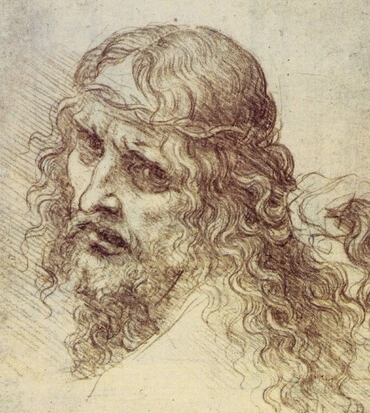
In the Old Testament, Jehovah -- once -- calls Himself "I AM". In Hebrew, the word is אֶהְיֶה , meaning "being", or "coming into being". This naming occurs in Exodus, when God appears to Moses in a burning bush, in the wilderness of Mount Horeb. It is one of the main spiritual turning points in the Bible, and the source of one of its deepest statements about God.
In that story, the descendants of Abraham, Isaac, and Jacob had become enslaved in Egypt. They are numerous, but their connection with their forebears and with the land of Canaan is tenuous. The Pharaoh of that time "knew not Joseph". Their spiritual progress had stalled out.
Jehovah chooses Moses, herding sheep in the desert, to go back to Egypt and lead his people to freedom.
"And Moses said to God, 'Behold, I come to the sons of Israel, and say to them, The God of your fathers has sent me to you; and they shall say to me, What is His name? What shall I say to them?' And God said to Moses, 'I AM WHO is I AM'; and He said, 'Thus shalt thou say to the sons of Israel: I AM has sent me to you'." (Exodus 3:13, 14)
"I AM". It goes right to the very core of existence. Bigger than space, beyond time, uncreated.
Then, after many hundreds of years, with some people in Judea and its neighborhood still waiting for the promised Messiah, Jesus -- this maverick teacher and healer -- says the same thing. People sit up and take notice.
Here are the examples...
The disciples are in a small boat in a storm-wracked sea. Jesus comes to them, walking on the water:
"But straightway Jesus spoke to them, saying, 'Have confidence; I am; be not afraid'." Matthew 14:27
Jesus is talking with a Samaritan woman at a well:
The woman says to Him, "I know that Messiah comes, who is called Christ; when He has come, He will announce to us all things." Jesus says to her, "I am, who speaks to thee." John 4:25, 26
Jesus is talking with his disciples:
"I said then to you that you shall die in your sins; for unless you believe that I am, you shall die in your sins. Therefore they said to Him, Who art thou? And Jesus said to them, The Beginning, who also am speaking to you. John 8:24, 25
Later, in the same chapter, Jesus says again to the disciples,
"Amen, amen, I say to you, Before Abraham was, I am." John 8:58
Near the end of his physical life, Jesus is talking with the disciples at the Last Supper:
"From henceforth I tell you before it come to pass, that when it has come to pass, you may believe that I am." John 13:19
Finally, when Jesus is being arrested, there's this powerful scene:
"Judas then, having received a band of soldiers and attendants from the chief priests and Pharisees, comes thither with lanterns, and lamps, and weapons. Jesus, therefore, knowing all things that were coming on Him, went out and said to them, Whom do you seek? They answered Him, Jesus of Nazareth. Jesus says to them, 'I am'.
And Judas also, who betrayed Him, stood with them. When therefore He had said to them, I am, they went away backward, and fell on the ground. Again, therefore, He asked them, Whom do you seek? And they said, Jesus of Nazareth. Jesus answered, I told you that I am; if then you seek Me, let these go away, that the word which He said might be fulfilled, Of those whom Thou gavest Me I have lost none. John 18:3-9
These "I am" statements by Jesus are not the same as the seven "I am" statements that are often listed -- those are also very interesting, but on a different track. The ones listed here are places where Jesus is declaring that He is God, that he is "I AM".
This is hugely important.
Isaiah prophesied that the Christ child would be God Himself, in human form:
"For unto us a child is born, unto us a son is given: and the government shall be upon his shoulder: and his name shall be called Wonderful, Counseller, The mighty God, The everlasting Father, The Prince of Peace." Isaiah 9:6.
Jesus is saying that same thing. Internally, He is "I am". And as he gradually puts off or purifies the more external human elements he took on so that He could walk among us, the internal shines through more and more.







